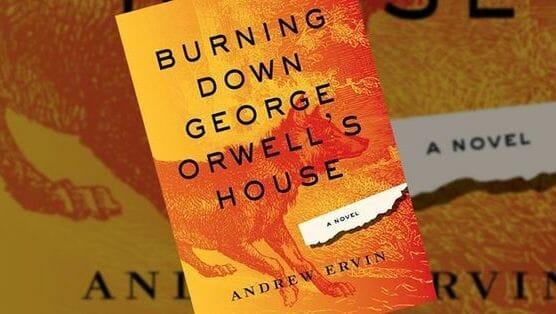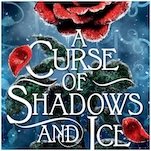Burning Down George Orwell’s House by Andrew Ervin
Pages from a Cold Island

In the opening chapter of Frederick Exley’s Pages from a Cold Island, we find “fictional memoirist” Exley drinking his breakfast in a Florida bar and penning lascivious come-ons to the earnest co-eds who have written him adoring fan mail regarding A Fan’s Notes, his acclaimed meditation on failure in America. Exley spends much of the rest of the book chasing the ghost of his literary hero, Edmund Wilson, through their nearly neighboring upstate New York hometowns. Exley sets off in search of the “stone house” Wilson famously used to clear out distractions, isolate his mind and do his best writing. Tracking down the physical center of Wilson’s inspiration—or at least his self-discipline—doesn’t provide Exley with much of either. The sad thing about achieving a measure of immortality through A Fan’s Notes was that Exley had to spend another 20 years running out the clock just to get there.
 George Orwell found his stone house in the Scottish Hebrides in 1946. Flush with the success of Animal Farm but devastated by the death of his wife, Orwell fled post-war London for the sparsely populated island of Jura. There, in an isolated farmhouse called Barnhill, he wrote his final novel and dystopian masterpiece, Nineteen Eighty-Four. Barnhill proved more felicitous for Orwell’s writing than the damp air of Jura did for his health. Diagnosed with fibroid tuberculosis, Orwell spent most of his time in British hospitals after Nineteen Eighty-Four’s publication in 1949, and he died less than a year later.
George Orwell found his stone house in the Scottish Hebrides in 1946. Flush with the success of Animal Farm but devastated by the death of his wife, Orwell fled post-war London for the sparsely populated island of Jura. There, in an isolated farmhouse called Barnhill, he wrote his final novel and dystopian masterpiece, Nineteen Eighty-Four. Barnhill proved more felicitous for Orwell’s writing than the damp air of Jura did for his health. Diagnosed with fibroid tuberculosis, Orwell spent most of his time in British hospitals after Nineteen Eighty-Four’s publication in 1949, and he died less than a year later.
-

-

-

-

-

-

-

-

-

-

-

-

-

-

-

-

-

-

-

-

-

-

-

-

-

-

-

-

-

-

-

-

-

-

-

-

-

-

-

-








































